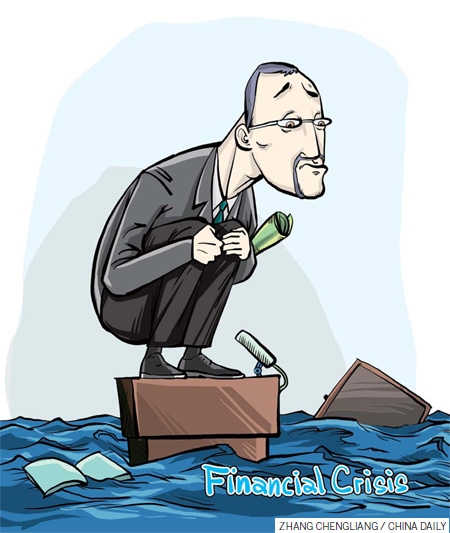Business schools must come out with more sustainable strategies
|
 |
Every Western university values its ability to attract students from around the world. Figures show that in 2009 well over 3 million students furthered their education outside their country of domicile, with China and India combined providing around a fifth of them.
The quest to expound and extend the management wisdom of the West makes the business school arena especially competitive. In the wake of the global financial crisis, however, the role of business schools has increasingly been called into question.
It is Philip Delves Broughton's Ahead of the Curve, the best-selling story of the author's two years among what he called Harvard's "jargon-spewing, values-destroying financiers", that most famously draws attention to certain institutions' supposed culpability in the worst economic collapse since the Great Depression.
The book may have made Delves Broughton "the man business schools love to hate", but his premise cannot be dismissed out of hand - particularly in an era when higher education, like finance before it, is being dramatically transformed by the phenomenon that is globalization. Were business schools genuinely a part of the problem, as Delves Broughton contends? And, if so, can they now become a part of the solution?
In considering these questions we must first recognize the remarkable reach of the economic narrative that has shaped the past half-century. In effect, this narrative was written by eminent economists whose theories argue that a certain form of economic rationality is creating a brave new world. The work of Nobel laureates such as Merton Miller, Myron Scholes and Robert Merton lays the foundations not just for a financial environment driven by myths - chief among them the notion of the efficient market - but for a particular variety of financial economics to triumph as the defining management narrative of our time.
In keeping with the American philosopher Nelson Goodman's concept of "worldmaking", this narrative became firmly entrenched. It dictates the way the world is supposed to work. Options, derivatives, leverage as a key to prosperity, self-regulating markets, self-correcting problems, built-in controls, risk management - to borrow Goodman's phrase, the given is acknowledged as taken.
And it does not stop there. The JP Morgan Guide to Credit Derivatives is referred to within the company as "the bible". Goldman Sachs claims to be doing "God's work" even as the financial firestorm raged in earnest. Wall Street sees itself as home to the self-appointed "masters of the universe". The finance industry proclaims itself the "engine of growth".
As less powerful rival narratives falls away, traditional business models become redundant. The ideals of service and customer relationships faded from view. The search for greater profits amid the intricacies of casino banking supplanted long-term investment in the productive economy. Starved of insider knowledge or impartial advice, borrowers are encouraged to be reckless. And the rest, as they say, is history.
Where do business schools fit into this? Inevitably, as recent literature has illustrated, they, too, do not escape the din of the economic narrative as mood music. Harvard's own Rakesh Khurana noted in 2007 that many had been "transformed from training grounds for general managers to institutions that trained professional investors and financial engineers, especially in the areas of investment banking, private equity and hedge funds". In 2008 Delves Brougthon condemned the propensity of top MBAs to aspire to "master of the universe" status. In journalist Gillian Tett's excellent Fool's Gold, published in 2009, one Wall Street veteran branded derivatives "financial hydrogen bombs built on personal computers by 26-year-olds with MBAs".
It is well worth reflecting on these criticisms in an age when tertiary education is poised to become every bit as global and intrinsically interlinked as the spheres of finance and economics. Ironically, the financial crisis may have temporarily slowed the rate of this metamorphosis; but it has not reversed it.